Artificial intelligence (AI) is now used in almost every industry. When it comes to medicine, what is artificial intelligence in healthcare? AI allows clinicians to streamline tasks, make operations more efficient, and make procedures that are hard to understand easier. Large tech companies are putting more money into AI-based innovations in healthcare.
AI can help people get better care and make giving care more productive and efficient. It can also enhance the day-to-day lives of healthcare workers by giving them more time to spend with patients. It can boost morale and make it easier to keep staff. It can even speed up the release of medicines that save lives.
At the same time, people have asked what effects AI could have on patients, doctors, and health systems and what risks it could pose. There are ethical debates about how AI and the data that supports it should be used.
How does AI make healthcare better?
Patients, physicians, and hospital managers benefit from artificial intelligence since it can accomplish people’s work more quickly and cheaply.
AI is changing healthcare, but this technology is still relatively new. As the use of AI in healthcare grows, questions about the benefits of artificial intelligence in healthcare and the advantages of artificial intelligence in healthcare become more critical.

1- Simplifies Projects
AI makes it easier to do things like review insurance, which is a good example. AI is used to keep costs down when insurance claims are denied. Healthcare providers can find and fix claims made in error with AI before the insurance company denies payment. The future of ai in healthcare not only speeds up the process but also saves hospital staff the time it would take to figure out why the claim was turned down and resubmit it.
By allowing faster payments and more accurate claims, hospitals can feel more confident about how long it will take to get paid. It makes them more likely to accept a broader range of insurance plans. AI lets hospitals accept many methods suitable for potential and current patients.
2- Offers Data In Real-Time
Getting accurate information is an essential part of diagnosing and treating medical problems. With AI limitations in medicine, people can use real-time and precise data to make critical clinical decisions faster and better. Getting faster and more accurate results can lead to better preventive steps, cost savings, and less time waiting for patients.
Better communication between doctors and patients is one benefit of real-time analytics. Doctors can get patients more involved in their care by making essential patient data available on mobile devices. Artificial intelligence’s importance in healthcare is that mobile alerts can tell doctors and nurses about emergencies and urgent changes in the health of their patients.
3- Facilitates Research
AI lets researchers gather a lot of data from many different places. The ability to use a large and growing body of information makes it easier to study diseases that kill. Similar to real-time data, artificial intelligence in healthcare pdf research can benefit from a large amount of available information as long as it is easy to translate.
Artificial intelligence has also been used to evaluate and identify early signs of sickness. Telehealth solutions are being adopted to monitor patients’ health, recoup critical diagnostic information, and add to the collective knowledge base.
4- Saves Time And Money
As machines do more critical tasks, doctors and nurses have more time to look at patients and figure out what’s wrong with them. AI is speeding up operations, which saves medical facilities valuable work hours. In every field, time equals money, so that that AI could save a lot of time and money.
It is thought that the healthcare industry wastes around $200 billion each year. Many of these unnecessary costs can be traced back to administrative problems, like filing, reviewing, and settling accounts. Medical necessity determination is another area that could use some work. Usually, it takes hours to look at a patient’s history and other information to determine if they need medical care.
5- Reduce Physician Pressure
According to some of the most recent research, more than half of primary care doctors feel stressed at work because of tight deadlines and other factors. AI helps streamline processes, automate tasks, share data instantly, and organize operations. These things make it easier for doctors and nurses to do their jobs.
AI’s Limitations in the Medical
Artificial intelligence has kept getting new ideas and improving. Modern solutions for machine learning can now act, learn, understand, and make predictions. It goes further than AI-driven robots that help with surgery and linked genetic codes.
Artificial intelligence has some negative impact on healthcare and challenges that come with using AI to improve healthcare. For example, patients could get hurt because of problems with ai in healthcare made by AI systems. In the same way, giving AI data about a patient puts that person’s privacy at risk.
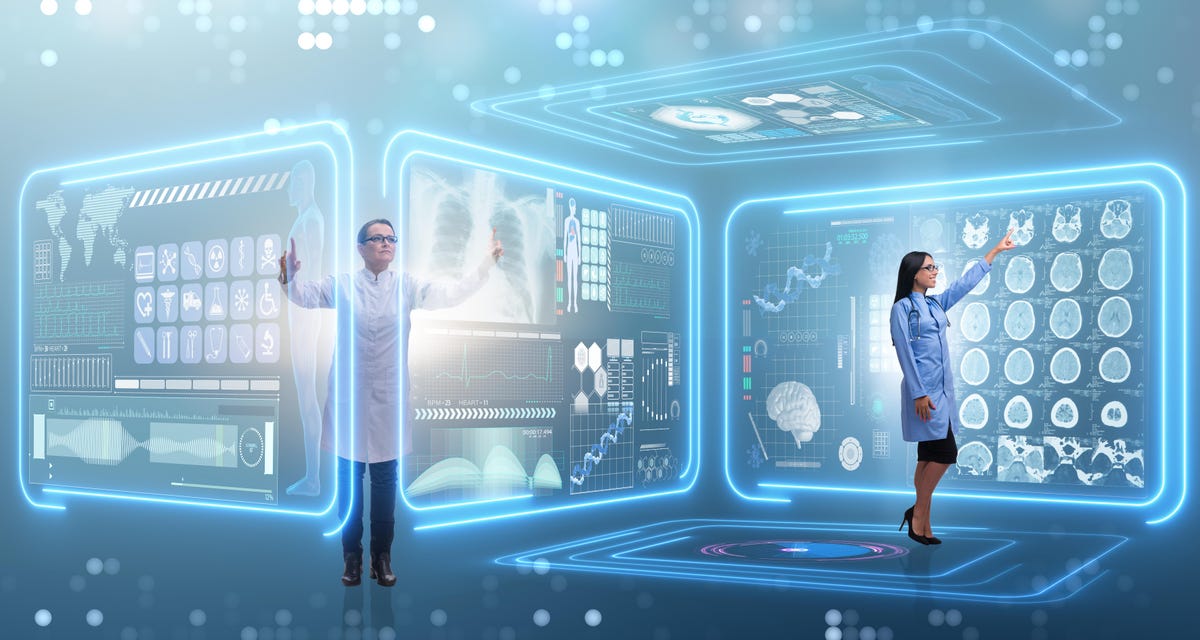
1- Risk Of Ignoring Social Factors
Patients often have needs that go beyond their immediate health. The impact of learning AI in healthcare, therefore, Social, economic, and historical factors can affect what kind of advice to give a particular patient. For example, based on a patient’s diagnosis, an AI system might be able to send them to a specific center of care. But this system might not be able to consider a patient’s budget or other personal preferences.
2- Still, mistakes are possible
Medical AI relies heavily on diagnosis data from millions of cases that have already been logged. When there isn’t much information about a disease, its patients, or its effects on the environment, a wrong diagnosis is a real possibility. It is vital when deciding what medicine to give someone.
3- Needs human supervision
AI has come a long way in the medical field, but people still need to keep an eye on things. For instance, surgery robots work logically instead of emotionally. Health professionals may notice essential things about how people act that can help them diagnose or avoid health problems.
4- May cause unemployment
AI could help cut costs and make doctors’ jobs more accessible, but it could also make some jobs obsolete. It is the negative impact of artificial intelligence in healthcare. This variable could cause healthcare professionals who spent time and money on their education to lose their jobs, which could be a problem for equity.
5- Possible Security Hazards
As AI is usually based on data networks, security risks can happen to AI systems. With the arrival of offensive AI, cyber security will need to be improved to ensure the technology lasts.
What Should Change To Promote Healthcare AI Adoption?
The steps made in the field of AI in healthcare have been huge. It will be harder to get to where AI can improve artificial intelligence in healthcare past, present, and future care in a significant, consistent, and global way.
AI isn’t a magic bullet for healthcare systems and comes with some restrictions. What are some disadvantages of artificial intelligence in education? The analyses in this report and the latest thoughts from stakeholders and frontline staff show a set of issues that all performers in the healthcare ecosystem will need to deal with:
- Education and skills need to be rethought. For AI to be used in healthcare, leaders must know biomedical and data science. Through joint degrees, there have been recent efforts to train students in the science where medicine, biology, and computer science meet.
- Quality products need user-centric design. User-centered design is essential. AI should integrate easily into decision-makers workflows and improve with usage. Many respondents agreed that if AI design provides value to end users, they will pay greater attention to data quality, strengthening the AI and creating a virtuous loop.
- Improving the quality, management, security, and interoperability of data. Before deploying AI, total digitalization of processes and data must be completed to avoid staff dissatisfaction that might spread to AI.
- Clinical leadership and openness to finding the correct use cases that assist rather than antagonize practitioners and complement rather than replace their capacity to provide excellent patient care are crucial to managing change when implementing AI in healthcare.
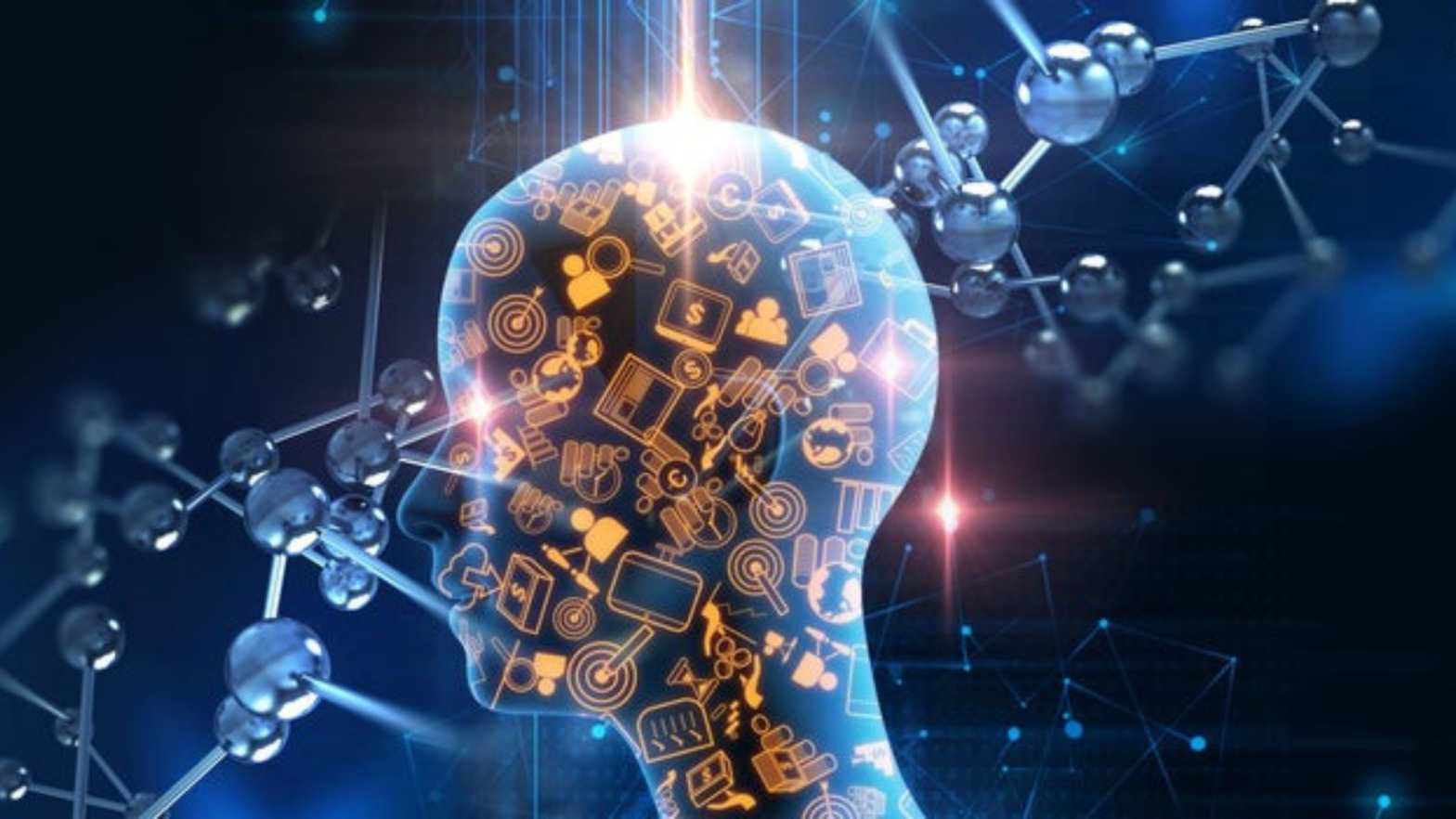
The Role Of AI Tools In Health Care
From long-term diseases like cancer to radiology, AI is being used to create efficient and accurate tools to help care for people with these diseases and, hopefully, find a cure. The advantages and disadvantages of artificial intelligence are AI is better than traditional ways of doing analytics and making clinical decisions in several ways. As AI algorithms get the chance to learn from training data, they create more accurate systems. It gives people new insights into treatment variability, care processes, diagnostics, and patient outcomes.
1- Early Diagnosis of Blood Diseases
Artificial intelligence is a huge help in figuring out early-stage blood diseases that could be deadly. With AI-enhanced microscopes, doctors can now scan blood samples for harmful substances and bacteria, like Staphylococcus, E. coli, etc., much faster than they could before.
Scientists used more than 25,000 pictures of blood samples to teach the machines how to find harmful bacteria. AI-enabled devices learn to recognize these bacteria in the blood and predict their presence in new models with a 95 percent accuracy rate. It made a big difference in the number of deaths.
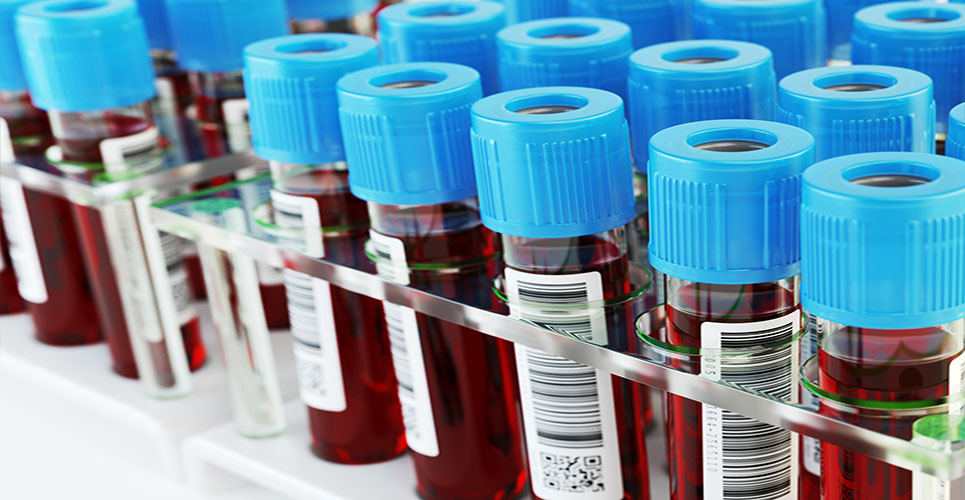
2- Accurate Cancer Diagnosis
PathAI is one of the best tools in healthcare for using Machine Learning and Artificial Intelligence to help Pathologists make accurate diagnoses. PathAI makes it easier to find out if someone has cancer and gives doctors a lot of new ways to treat each person. Most patients can be treated or cured with more accurate cancer diagnoses before the disease kills them. It saves many lives.

3- Online Health Helpers
Virtual health assistants are in charge of some tasks, such as answering calls and emails from regular patients, managing patients’ medical information and protecting sensitive data, setting up appointments with doctors, sending patients follow-ups and clinical appointment reminders, etc.

4- Chatbots for Customer Care
Chatbots are made with the help of technologies like NLP, which lets patients ask questions about appointments, pay bills, and more. Chatbots can also talk to patients about their illnesses and symptoms, which makes it easier for doctors and nurses to do their jobs.
Also, chatbots help patients find the answers they need so that healthcare professionals can focus on other essential tasks. This healthcare solution not only gets patients involved but also gives them better care and better results.

5- Specialized Care
With the help of Deep Learning and AI, BenevolentAI was able to give the proper treatment to suitable patients at the right time. It led to a better selection of patients to target and gave insights. The company is working on getting its medicines approved and making medicines for rare diseases that can be taken on the go.

6- Robotic-assisted surgery
Robots are helping doctors do surgery more and more these days. Robotics is being used in some hospitals to help with tasks that need precision, control, and flexibility. It is used to do things that humans can’t do, like open-heart surgery.
When robots are combined with mechanical arms, cameras, and the surgical tools they need, they add to the doctors’ knowledge, skills, and experience, creating a new type of surgery. So, surgeons can sit at a computer console and control the robot’s mechanical arms while the robot gives them a magnified, three-dimensional view of the surgery site that they couldn’t see with their own eyes.
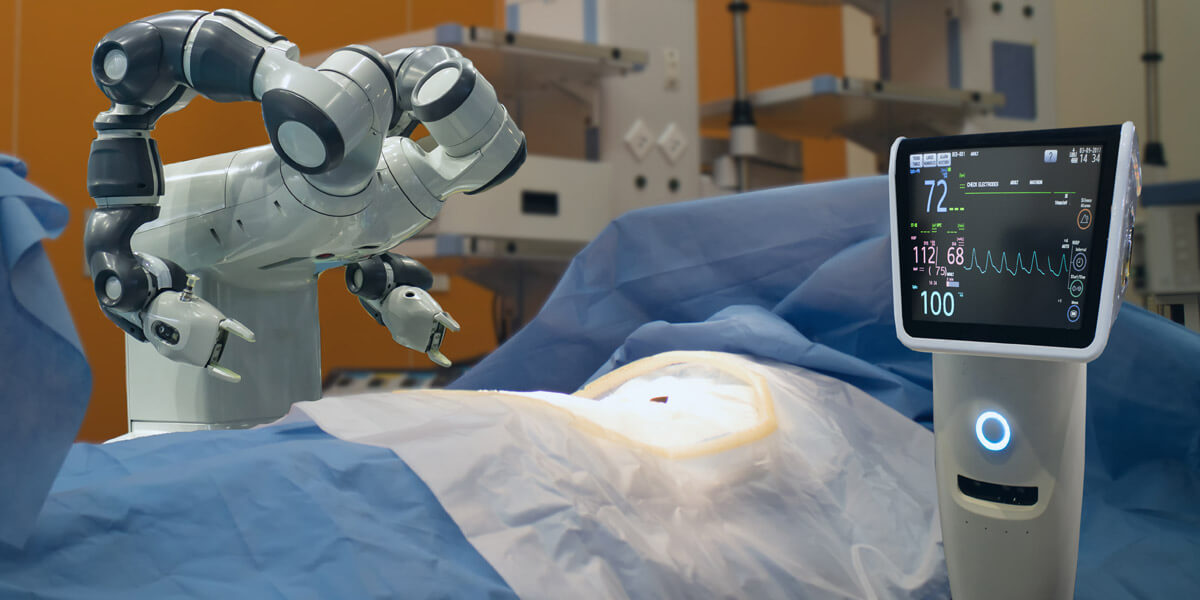
7- Developing New Medicines
Developing new drugs for clinical trials takes a lot of time and money. The best thing about Artificial Intelligence technology is that it lets doctors look at already-made medicines and use them to make new medicines that are better at fighting specific diseases. That makes it less expensive to create new medicines.

Pros and cons of using AI in healthcare
There should be a balance in everything, including how AI is used. Even though this technology has some good things to offer in the healthcare field, it also has some bad things. In addition to the benefits, the table below shows the challenges of AI in healthcare services.
| PROS | CONS |
| Better serves rural areas | A complex change to get used to |
| Improved diagnosis | Problems with learning AI |
| Streamlines some things | Needs the right AI platform to be put in place |
| Good diagnostic decisions | Requires human assistance |
AI Applications Relevant To Healthcare
Artificial intelligence is a collection of technologies, not a single one. Most of these technologies have challenges of ai in healthcare and immediate impact on the healthcare industry, although the procedures and jobs they assist considerably. Several examples of artificial intelligence in healthcare and AI technologies of considerable relevance to the healthcare industry are identified and detailed in the following section.
1- Processing of natural language
There are two main ways to do it: the statistical and semantic NLP methods. Statistical NLP is based on machine learning and intense learning neural networks and has helped increase recognition accuracy in recent years. It needs a big “corpus,” or language body, to learn from.
Most ways NLP is used in healthcare involve making, understanding, and organizing clinical documentation and published research. NLP systems can look at unstructured clinical notes about patients, make reports (for example, on radiology exams), transcribe conversations between patients, and run AI that can have conversations with people.
2- Expert rule systems
Expert systems need domain experts and knowledge engineers to create rules. They function and are simple. However, when there are many rules (typically exceeding several thousand) that contradict, they break down. Changing laws is complex and time-consuming if the knowledge area changes. Data-driven and machine learning-based healthcare practices are replacing them.
3- Machine learning
Typical machine learning is most often used in healthcare for precision medicine, figuring out which treatment protocols are most likely to work on a patient based on different things about the patient and the treatment context. Most machine learning and precision medicine applications need a training dataset where the outcome variable (like when a disease starts) is known. It is called supervised learning.
4- Physical robots
Physical robots are well-known since more than 200,000 industrial robots are installed worldwide yearly. They do jobs that have already been planned out, like lifting, moving, welding, or putting things together, in factories, warehouses, and hospitals. In recent years, robots have become easier to train and work better with people because you can move them through a task you want them to do.
5- Automated procedure
This technology executes administrative information system activities like a person following a script. They are cheap, simple to develop, and transparent compared to other AI. RPA uses server applications, not robots. Workflow, business rules, and “presentation layer” connection with information systems make it function like a semi-intelligent user. They do repetitive healthcare duties such as prior authorization, patient record updates, and invoicing.
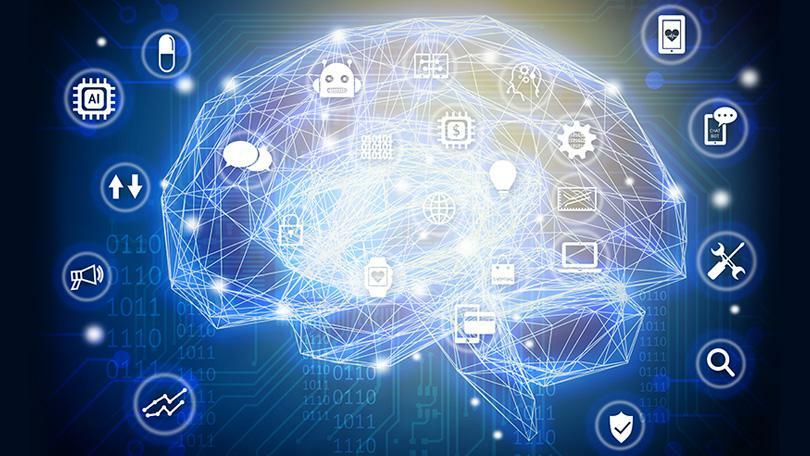
Conclusion
AI might enhance healthcare. Automating tedious processes frees up physician time for patient interaction. Data accessibility helps doctors avoid sickness. Real-time data helps diagnosis faster. AI is reducing administrative mistakes and saving essential resources. AI is becoming more valuable and knowledgeable thanks to SMEs. Limits and problems are addressed when AI is applied to healthcare.
Despite some of the difficulties and restrictions involved with AI, this cutting-edge technology has excellent potential for medicine. Everyone’s lives are bettering thanks to AI, from patients to doctors.
FAQS
What are the dangers of using AI in health care?
The report lists and explains the main clinical, social, and ethical risks that AI in healthcare poses, such as the possibility of mistakes and harm to patients, the risk of bias and more health disparities, the lack of transparency and trust, and the risk of hacking and data privacy breaches.
How has AI changed the way health care is given?
AI can help doctors figure out what’s wrong with a patient by looking at their symptoms, suggesting personalized treatments, and predicting risk. It can also diagnose abnormal results.
How does AI affect society? Is it good or bad?
One of the biggest worries in society is that as artificial intelligence gets better, many routine jobs will be taken over by machines. More people will have to quit their jobs as more jobs become automated. Even though many people might see it as a bad thing about AI, it isn’t.
AI causing unemployment?
We looked into the link between AI, robots, and unemployment using panel data from 33 OECD countries. Both robots and AI tend to make more people unemployed.
How do we benefit from artificial intelligence today?
Simply put, AI helps organizations make better decisions. It improves core business processes by making strategic decision-making faster and more accurate.
Can AI hurt the economy in any way?
AI’s disruptive effects may also impact wages, how money is shared, and economic inequality.
